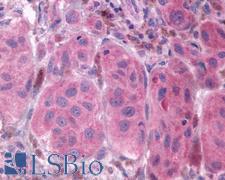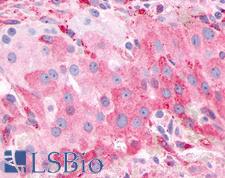Login
Registration enables users to use special features of this website, such as past
order histories, retained contact details for faster checkout, review submissions, and special promotions.
order histories, retained contact details for faster checkout, review submissions, and special promotions.
Forgot password?
Registration enables users to use special features of this website, such as past
order histories, retained contact details for faster checkout, review submissions, and special promotions.
order histories, retained contact details for faster checkout, review submissions, and special promotions.
Quick Order
Products
Antibodies
ELISA and Assay Kits
Research Areas
Infectious Disease
Resources
Purchasing
Reference Material
Contact Us
Location
Corporate Headquarters
Vector Laboratories, Inc.
6737 Mowry Ave
Newark, CA 94560
United States
Telephone Numbers
Customer Service: (800) 227-6666 / (650) 697-3600
Contact Us
Additional Contact Details
Login
Registration enables users to use special features of this website, such as past
order histories, retained contact details for faster checkout, review submissions, and special promotions.
order histories, retained contact details for faster checkout, review submissions, and special promotions.
Forgot password?
Registration enables users to use special features of this website, such as past
order histories, retained contact details for faster checkout, review submissions, and special promotions.
order histories, retained contact details for faster checkout, review submissions, and special promotions.
Quick Order
PathPlusTM FP / PTGFR Antibodies
PTGFR is a receptor for prostaglandin F2-alpha (PGF2-alpha). PTGFR activity is mediated by G proteins that activate a phosphatidylinositol-calcium second messenger system. It has various functions in different tissues throughout the body, ranging from hair growth to reproductive signaling, hyperpigmentation of the skin, regulation of allergic response and inflammation, blood pressure control, and regulation of bone remodeling. In the corpus luteum, it initiates luteolysis. Studies in fish demonstrate that PTGFR and prostaglandin F2-alpha control the initiation of female sexual behaviour and regulate neural circuits involved with fertility status in the brain. Additionally, PTGFR is a target of agonists as part of treatment therapies for various diseases including glaucoma, hypotrichosis of the eyelashes, and periorbital vitiligo or hypopigmentation of the skin. In immunohistochemistry, PTGFR has membranous positivity in the uterine myometrium, in smooth muscle cells and the endothelium in the eye, as well as distal tubules of the kidney and luteal cells of the corpus luteum in the ovaries.
References: Curr Biol. 2016 Apr 4;26(7):943-9, PMID: 26996507; American Academy of Dermatology. 2015. 72 (4): 712–6, PMID: 25601618; Prostaglandins & Other Lipid Mediators. 2013. 104–105: 109–21, PMID: 23353557;
2 PathPlusTM Antibodies


☰ Filters
Products
Antibodies
(2)
Type
Primary
(2)
Target
FP / PTGFR
(2)
Reactivity
Human
(2)
Horse
(1)
Monkey
(1)
Application
IHC
(2)
IHC-P
(2)
ICC
(1)
Host
rabbit
(2)
Product Group
GPCR Database Antibodies
(2)
PathPlus Cancer
(2)
Clonality
polyclonal pc
(2)
Format
Unconjugated
(2)
Epitope
Extracellular Domain
(2)
Publications
No
(1)
Yes
(1)

Cancer
FP / PTGFR Rabbit anti-Human Polyclonal (Extracellular Domain) Antibody
Horse, Human, Monkey
ICC, IHC, IHC-P
Unconjugated
50 µg/$395

Cancer
Fast Shipping
FP / PTGFR Rabbit anti-Human Polyclonal (Extracellular Domain) Antibody
Human
IHC, IHC-P
Unconjugated
50 µg/$395
Viewing 1-2
of 2
product results











